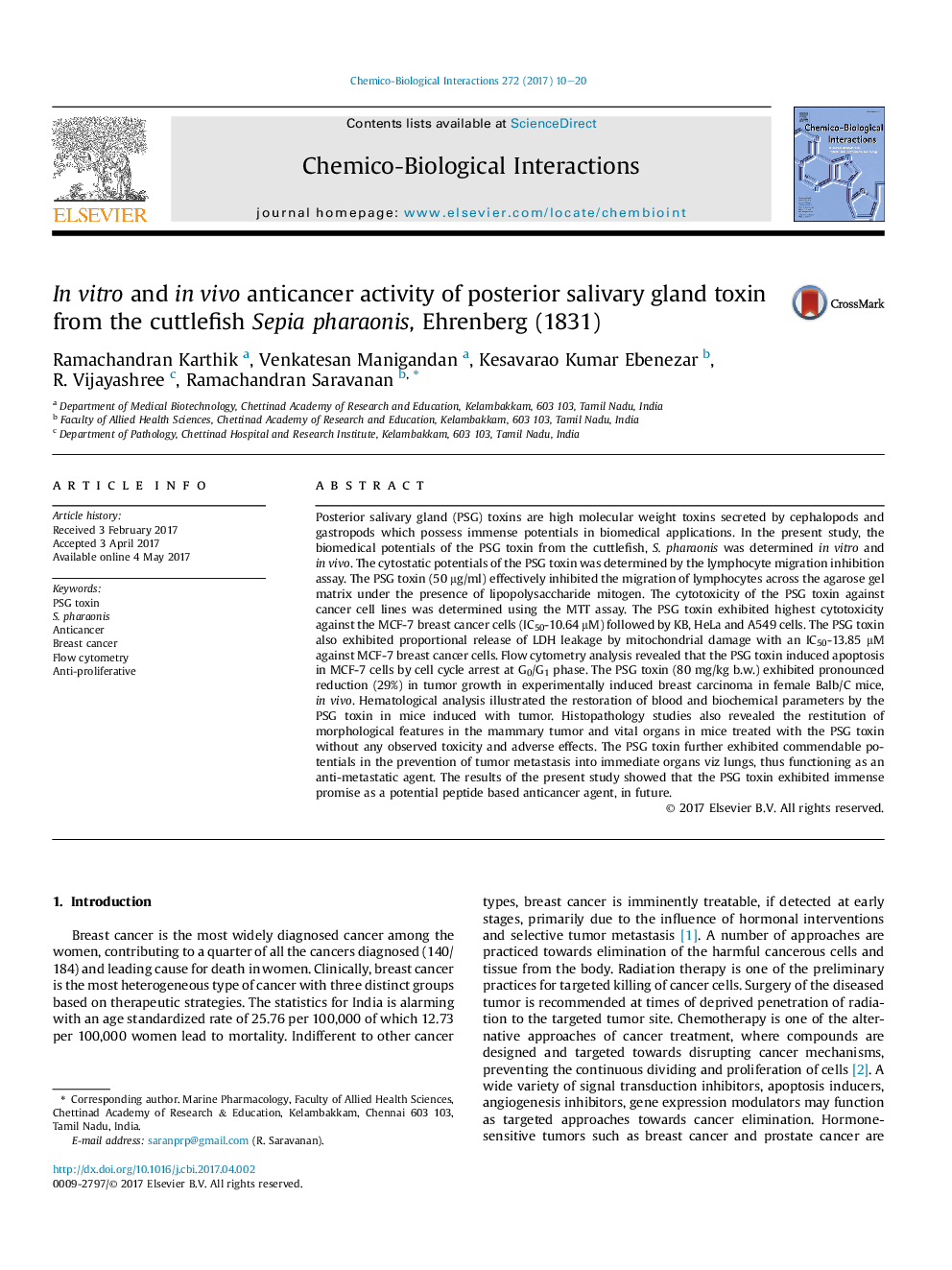| کد مقاله | کد نشریه | سال انتشار | مقاله انگلیسی | نسخه تمام متن |
|---|---|---|---|---|
| 5559486 | 1561570 | 2017 | 11 صفحه PDF | دانلود رایگان |

- PSG toxin from S. pharaonis inhibited migration of lymphocytes, functioning as a cytostatic agent.
- PSG toxin exhibited highest cytotoxicity against MCF-7, KB, HeLa and A549 cancer cells.
- Flow cytometry showed PSG toxin induced apoptosis in MCF-7Â cells by cell cycle arrest at G0/G1 phase.
- PSG toxin - antiproliferative activity by reduction of tumor growth and metastasis inhibition.
- PSG toxin could be an alternate source of peptide based anticancer agent in future.
Posterior salivary gland (PSG) toxins are high molecular weight toxins secreted by cephalopods and gastropods which possess immense potentials in biomedical applications. In the present study, the biomedical potentials of the PSG toxin from the cuttlefish, S. pharaonis was determined in vitro and in vivo. The cytostatic potentials of the PSG toxin was determined by the lymphocyte migration inhibition assay. The PSG toxin (50 μg/ml) effectively inhibited the migration of lymphocytes across the agarose gel matrix under the presence of lipopolysaccharide mitogen. The cytotoxicity of the PSG toxin against cancer cell lines was determined using the MTT assay. The PSG toxin exhibited highest cytotoxicity against the MCF-7 breast cancer cells (IC50-10.64 μM) followed by KB, HeLa and A549 cells. The PSG toxin also exhibited proportional release of LDH leakage by mitochondrial damage with an IC50-13.85 μM against MCF-7 breast cancer cells. Flow cytometry analysis revealed that the PSG toxin induced apoptosis in MCF-7 cells by cell cycle arrest at G0/G1 phase. The PSG toxin (80 mg/kg b.w.) exhibited pronounced reduction (29%) in tumor growth in experimentally induced breast carcinoma in female Balb/C mice, in vivo. Hematological analysis illustrated the restoration of blood and biochemical parameters by the PSG toxin in mice induced with tumor. Histopathology studies also revealed the restitution of morphological features in the mammary tumor and vital organs in mice treated with the PSG toxin without any observed toxicity and adverse effects. The PSG toxin further exhibited commendable potentials in the prevention of tumor metastasis into immediate organs viz lungs, thus functioning as an anti-metastatic agent. The results of the present study showed that the PSG toxin exhibited immense promise as a potential peptide based anticancer agent, in future.
274
Journal: Chemico-Biological Interactions - Volume 272, 25 June 2017, Pages 10-20